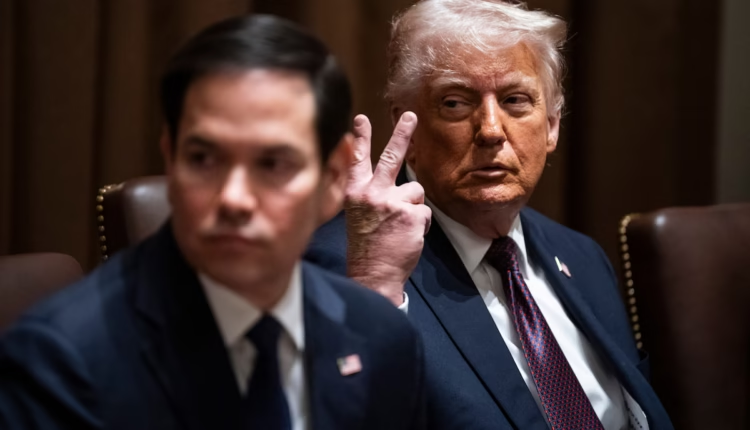The Trump administration is weighing new travel restrictions targeting 36 additional countries, including key U.S. partners such as Egypt and Djibouti, according to an internal State Department memo.
Signed by Secretary of State Marco Rubio and circulated to U.S. diplomats, the memo gives the listed governments 60 days to comply with new State Department requirements or face potential visa restrictions, travel bans, or other limitations. The proposed measures would significantly expand existing immigration controls, affecting 25 African nations—among them Nigeria, Ghana, and South Sudan—as well as several Caribbean, Asian, and Oceanian countries.
The list includes major African economies like Angola and Ethiopia, alongside smaller nations such as Gambia and São Tomé and Príncipe. Several Caribbean countries, including Antigua and Barbuda and Saint Lucia, are also included, as well as Asian nations like Bhutan and Cambodia. The administration has cited security concerns and insufficient cooperation on immigration enforcement as reasons for the potential restrictions. However, critics argue that the move could strain diplomatic relations and harm economic ties with affected nations.
Affected countries have until 8 a.m. Wednesday to submit an initial plan outlining how they will meet the State Department’s new demands. The requirements reportedly focus on improving information-sharing, enhancing border security, and addressing issues like visa overstays. Failure to comply could result in severe consequences, including bans on certain visa categories or outright travel restrictions. The memo does not specify whether exemptions will be made for students, business travelers, or other groups.
This potential expansion follows previous travel bans targeting predominantly Muslim-majority countries, which sparked legal challenges and widespread protests. If implemented, the new restrictions would mark one of the administration’s most sweeping immigration policy moves yet. Observers warn that the measures could further isolate the U.S. internationally, particularly in Africa, where China and other powers have been expanding influence. With the deadline approaching, affected nations are scrambling to respond—but the long-term implications remain uncertain.
Other countries include:
Angola, Benin, Burkina Faso, Cabo Verde, Cameroon, Côte d’Ivoire, Democratic Republic of the Congo, Djibouti, Ethiopia, Egypt, Gabon, Gambia, Ghana, Liberia, Malawi, Mauritania, Niger, Nigeria, Sao Tome and Principe, Senegal, South Sudan, Tanzania, Uganda, Zambia, and Zimbabwe



